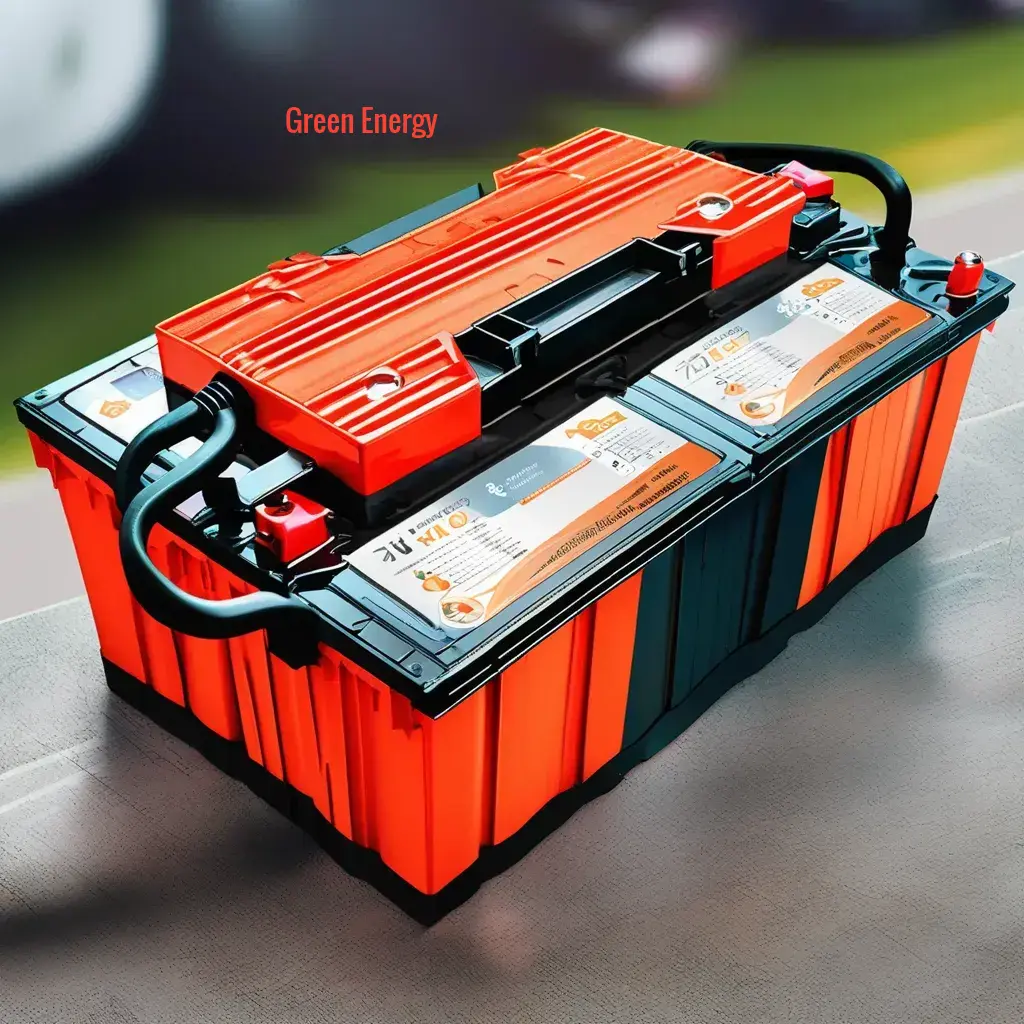In the quest for sustainable and cost-effective energy solutions, solar power has emerged as a popular choice for both residential and commercial applications. A crucial component of any solar energy system is the solar battery, which stores the energy generated by solar panels for use when sunlight is not available, such as during the night or on cloudy days. Selecting the right solar battery is essential for maximizing the efficiency and effectiveness of your solar power system. In this blog post, we’ll explore six key considerations to help you choose the best solar battery for your needs.
1. Capacity: How Much Energy Can Your Battery Store?
When choosing a solar battery, which currently costing between 300-450k Naira for 12V-200AH depending on your desired make, the first factor to consider is its capacity, which refers to the total amount of energy the battery can store, typically measured in kilowatt-hours (kWh). The capacity of a battery determines how much electricity it can supply to your home or business during periods when the solar panels are not generating power.
Why Capacity Matters:
- Daily Energy Consumption: The capacity of your solar battery should align with your household or business’s daily energy consumption. A larger capacity battery can store more energy, which is especially useful during extended periods of low sunlight or during high energy usage.
- Backup Power: If you intend to use your solar battery as a backup power source during outages, you’ll need a battery with sufficient capacity to power essential appliances and devices for the duration of the outage.
How to Calculate Capacity Needs:
- Assess Daily Usage: Begin by calculating your average daily electricity usage in kWh. This information is often available on your utility bill.
- Determine Desired Autonomy: Decide how many hours or days you want the battery to power your home without recharging. Multiply your daily usage by the desired number of days to determine the total capacity required.
For example, if your household uses 30 kWh per day and you want the battery to provide power for 2 days, you’ll need a battery with at least 60 kWh of capacity.
2. Depth of Discharge (DoD): How Much of the Battery’s Capacity Can You Use?
The depth of discharge (DoD) of a solar battery refers to the percentage of the battery’s total capacity that can be used before it needs to be recharged. Most batteries have a recommended DoD to ensure longevity and optimal performance.
Why DoD Matters:
- Maximizing Usable Capacity: A higher DoD means you can use more of the battery’s total capacity before needing to recharge it. For example, if a battery has a capacity of 10 kWh and a DoD of 90%, you can use 9 kWh before recharging.
- Battery Longevity: Regularly discharging a battery beyond its recommended DoD can shorten its lifespan. Therefore, choosing a battery with a higher DoD allows for more efficient use without compromising the battery’s longevity.
What to Look For:
- DoD Percentage: Look for batteries with a DoD of 80% or higher. Lithium-ion batteries, for instance, often have a higher DoD compared to other types, making them a popular choice for solar energy systems.
3. Lifespan: How Long Will Your Battery Last?
The lifespan of a solar battery is measured in cycles or years, depending on the manufacturer. A cycle is a full charge and discharge of the battery, and batteries typically have a specified number of cycles they can endure before their performance starts to degrade.
Why Lifespan Matters:
- Investment Value: Solar batteries are a significant investment, so you’ll want to ensure that your chosen battery will last for as long as possible to get the best return on your investment.
- Maintenance and Replacement Costs: A battery with a longer lifespan will reduce the frequency of replacements, thereby lowering the overall cost of maintaining your solar power system.
How to Evaluate Lifespan:
- Cycle Life: Check the number of cycles the battery is rated for. Batteries with a higher cycle life will last longer and provide more value over time.
- Warranty: Review the warranty terms provided by the manufacturer. A longer warranty period is often an indicator of the battery’s expected lifespan and the manufacturer’s confidence in their product.
4. Compatibility: Will the Battery Work with Your Solar System?
Compatibility is a crucial factor when selecting a solar battery, as it needs to integrate seamlessly with your existing or planned solar power system. This includes ensuring that the battery is compatible with your solar panels, inverter, and other components.
Why Compatibility Matters:
- System Efficiency: A compatible battery will work efficiently with your solar panels and inverter, maximizing the overall performance of your solar power system.
- Ease of Installation: Choosing a battery that is compatible with your system can simplify the installation process and reduce the likelihood of technical issues.
How to Ensure Compatibility:
- Inverter Compatibility: Make sure the battery is compatible with your inverter. Some batteries are designed to work specifically with certain inverters, while others are more versatile.
- Check with Manufacturer: Consult the manufacturer’s guidelines or speak with a solar energy professional to confirm that the battery you’re considering will integrate well with your existing system.
5. Efficiency: How Much Energy Is Lost During Charging and Discharging?
The efficiency of a solar battery, often referred to as round-trip efficiency, indicates the percentage of energy that can be used from the battery compared to the amount of energy that was stored. Higher efficiency means that less energy is lost during the charging and discharging process.
Why Efficiency Matters:
- Maximizing Energy Use: Higher efficiency means that you can utilize more of the energy stored in the battery, making your solar power system more effective and reducing waste.
- Cost Savings: Efficient batteries can lower your overall energy costs by ensuring that more of the solar energy you generate is available for use.
What to Look For:
- Round-Trip Efficiency: Look for batteries with a round-trip efficiency of 90% or higher. This means that for every 10 kWh stored in the battery, 9 kWh will be available for use.
- Energy Management Systems: Some batteries come with integrated energy management systems that optimize the charging and discharging process, further enhancing efficiency.
6. Cost: How Much Are You Willing to Invest?
The cost of a solar battery is a significant factor to consider, as it will impact the overall budget of your solar power system. However, it’s important to balance cost with the features and performance you require.
Why Cost Matters:
- Budget Considerations: While high-quality batteries with better features and longer lifespans typically come at a higher price, they may offer better value in the long run due to reduced maintenance and replacement costs.
- Return on Investment: Consider the long-term savings and benefits of a more expensive battery versus a lower-cost option. Investing in a higher-quality battery could result in greater savings over time.
How to Approach Cost:
- Compare Options: Research and compare different batteries within your budget range. Look at factors like capacity, lifespan, efficiency, and warranty to determine which offers the best value.
- Long-Term Savings: Consider the potential long-term savings from energy efficiency, reduced replacement frequency, and overall performance when choosing a battery.
Conclusion
Choosing the right solar battery involves careful consideration of multiple factors, including capacity, depth of discharge, lifespan, compatibility, efficiency, and cost. By thoroughly evaluating these aspects, you can select a solar battery that not only meets your energy needs but also provides long-term value and reliability. As solar technology continues to advance, making an informed decision today will ensure that your solar power system remains efficient, effective, and sustainable for years to come.

